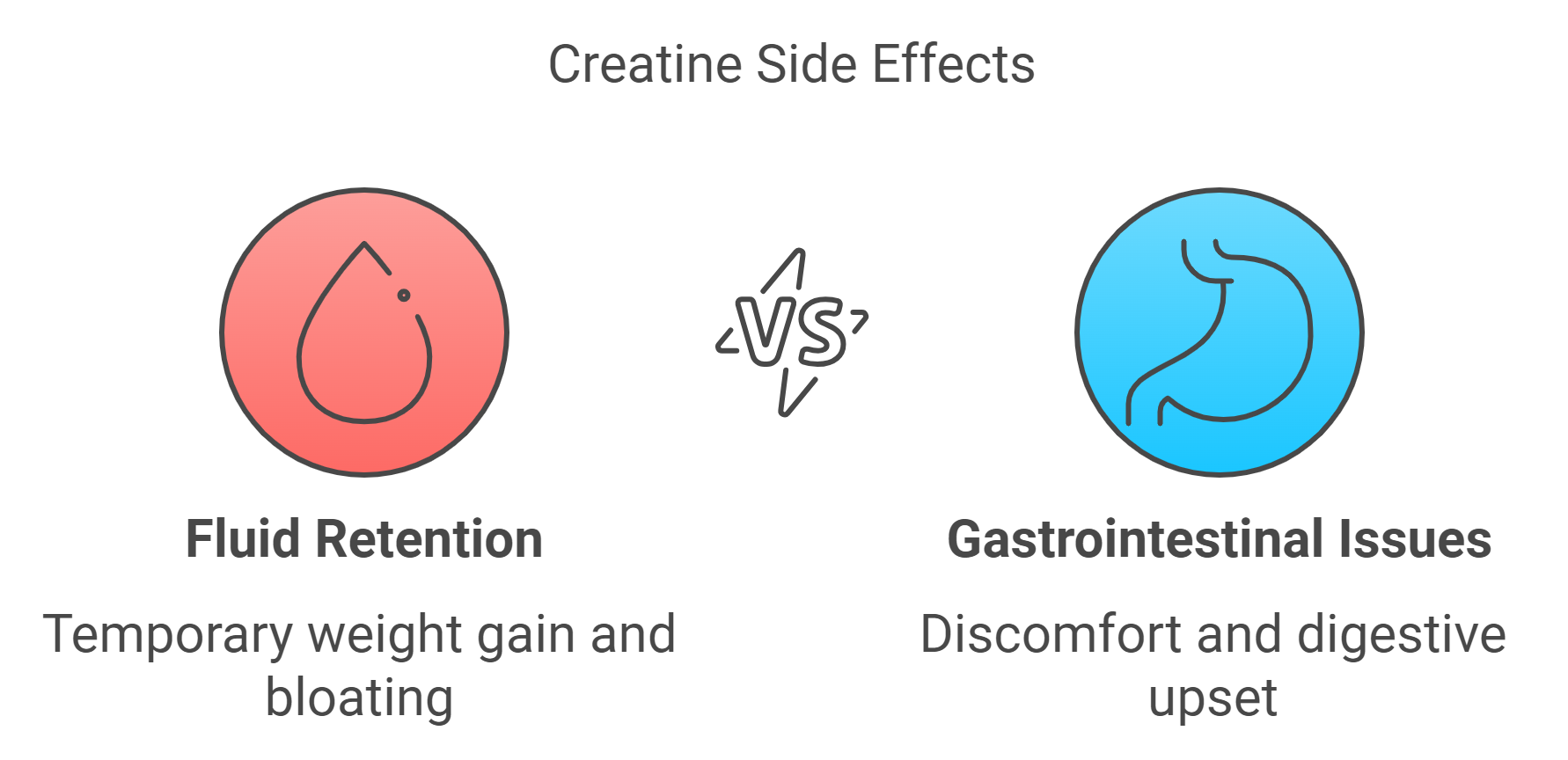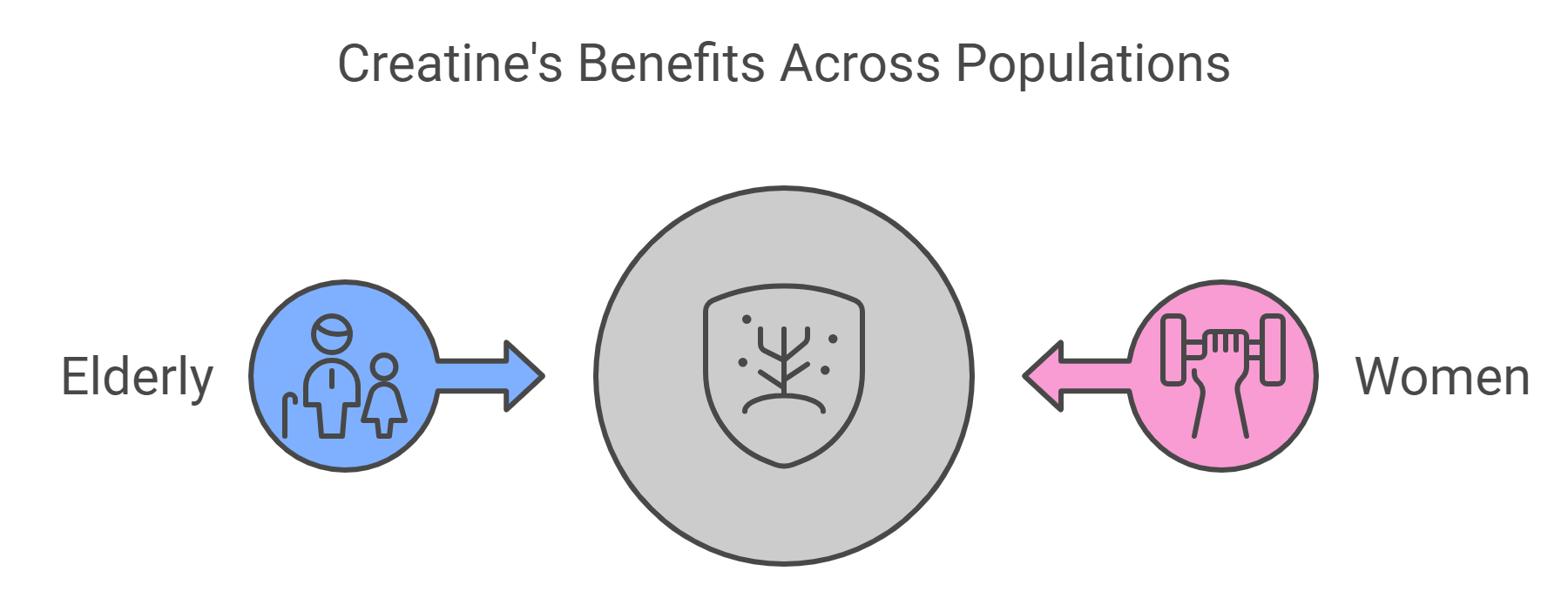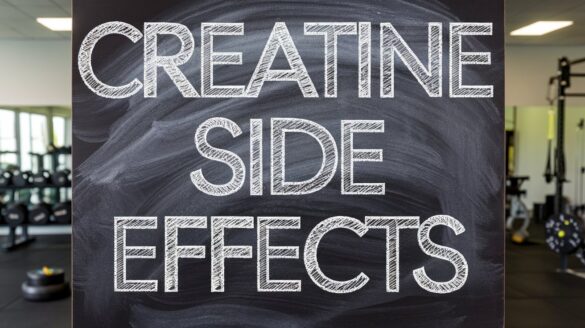Is Creatine Bad for You? Exact Answer
Creatine is generally considered safe for healthy people taking normally recommended dosages from 3 to 5 grams per day. Other minor side effects include water retention, stomach upsets, and temporary weight gain.
No evidence has been established that they cause impairments in renal or liver function in healthy subjects, but in those with pre-existing conditions, they should consult with a health professional before using. Adequate hydration, coupled with proper dosage, may minimize most of the side effects.
What is Creatine and How Does it Work?
How Does Creatine Work with Energy Production?
Creatine plays a massive role in replenishing ATP, which could be said to be the first-line energy molecule for the body and is needed during short bursts of high intensity. It may be stored in muscles as phosphocreatine and aids immediately in producing fast energy that would fuel activities like sprinting or weight-lifting. People use creatine supplements in raising their muscle’s phosphocreatine levels leading to improved performance, strength, and recovery.

Why take creatine supplements?
Probably, the most watched over supplementation in the world of sports and fitness is creatine. From different studies, scientists were able to determine the effects of the supplement especially in developing the strength and endurance of the muscle. Aside from what it offers as for muscle strength and endurance, creatine has other health benefits. Especially cognitive functions are heightened, mainly in older adults. Therefore, athletes and even fitness enthusiasts use this supplement to heighten the effects that are produced by their training.
Negative Effects of Creatine
Fluid Retention and Weight Gain
The most common side effect of creatine supplementation is water retention. Creatine pulls water into muscle cells where, for a while, results in weight gain that can leave a feeling of bloating or a “fuller” feeling inside the muscles. This effect is harmless but extremely unpleasant to several users especially during loading. The body will eventually get accustomed to supplementation; however, water retention usually returns to normal within several weeks.
Gastrointestinal Disturbances
Others experience gastrointestinal side effects which may be as minimal as bloating and diarrhea to stomach aches that occur, especially when one consumes large creatine doses all at once. Such negative effects can be overcome either by taking half the recommended dose, but in multiple servings throughout the day, or by creatine supplementation with higher increases in water consumption.

Long Term Risks
Renal Function Effects
Effects on the kidneys, especially in those patients diagnosed with a pre-existing kidney problem, have been the primary concern regarding the use of creatine. There is no evidence that creatine causes kidney damage in healthy individuals when taken at dosages recommended by healthcare professionals. Thus, for the cases involving impaired kidney function or prior medical diagnoses associated with kidney disease, they should consult their physician before taking in any supplement with the content of creatine(Cleveland Clinic).
Effects on Liver and Cardiovascular Concerns
There is little evidence that creatine is toxic to the liver or cardiovascular system in healthy users. Anecdotal concerns regarding increased liver enzymes have not been corroborated with human clinical studies on the use of creatine. As with kidney function, individuals with existing liver diseases should seek medical consultation before using creatine.

Creatine Myths and Misconceptions
Creatine and Hydration
Probably the most common is that it dehydrates because of creatine. Ironically, it draws water into your muscle cells, but does not dehydrate you. What is more, it requires you to be hydrated when supplementing with creatine, so that when effects like cramping or soreness occur in muscles, they are either reduced or prevented.
Proper hydration of a person may obviate concerns that would emanate from the consumption of creatine.
Does Creatine Cause Hair Loss?
Most anecdotal claims have considered creatine to cause hair loss, based on the notion that creatinine elevated DHT, a hormone for which hair thinning is attributed. Notwithstanding this anecdotal information, there are no robust clinical-based premises establishing an association between creatine and either hair loss or its acceleration. Greater work would be necessary prior to establishing any association of the two, but as currently exists, it remains an urban legend.
Creatine and Specific Populations
Creatine Use in Women
Women can safely take creatine without any side effects whatsoever and, like men, benefit similarly from greater muscle mass, strength, and endurance. It has been shown that although men tend to accumulate many more times in muscle mass than their counterparts due to their better hormonal condition, creatine enhances training performance in females relative to that of men.
Creatine for the Elderly
Recent studies provide some evidence that in the elderly, creatine might be helpful as a means of preventing muscle loss and minimizing muscle impairment. Apart from the physical benefits of creating, there are other mental benefits that could be gained from supplementation of creatine whereby improving memory and neuroprotection occurs. In maintaining both physiological health and mental well-being, this supplement can be of significant value to the geriatric client. As one of the supplements that help with healthy aging, the following are questions often asked about creatine.

Frequently Asked Questions
Is creatine bad for the kidneys?
Creatine supplementation does not adversely affect the healthy kidneys. However, such a person with kidney disease or kidney disorders history should see a doctor before its use.
Does creatine cause bloating?
Yes, creatine will cause bloating by creating water storage inside the muscle cells, especially in the loading phase. It is a temporary phenomenon and subsides within a while.
Is creatine safe for long time use?
Current evidence suggests the general safety of creatine for long-term use if taken according to established dosing. However, research on longer intake periods than several years is scarce.
Does creatine cause hair loss?
There is currently no established evidence that recommends creatine has any potential to cause hair loss. Several reports do suggest that there is a link between creatine and higher levels of DHT, but a cause-and-effect relationship cannot be confirmed.
Can creatine cause dehydration?
Creatine actually increases the muscular retention of water but has no relation to dehydration. Drinks and fluids should be taken in adequate amounts while on creatine to prevent suffering from unbearable side effects.

